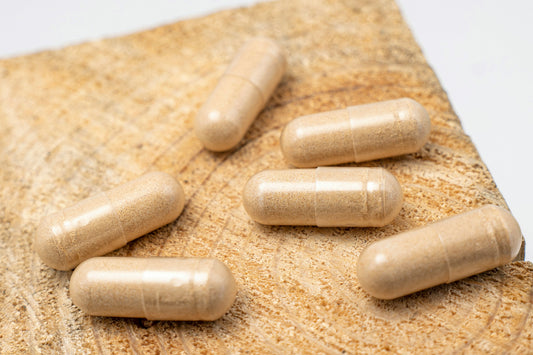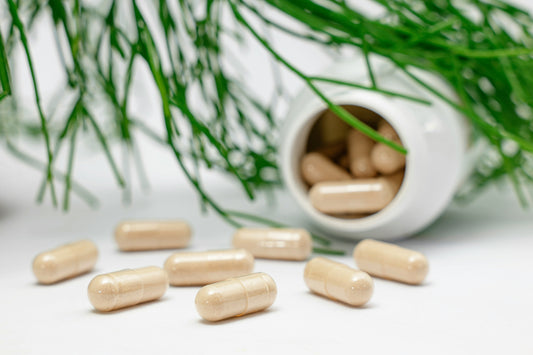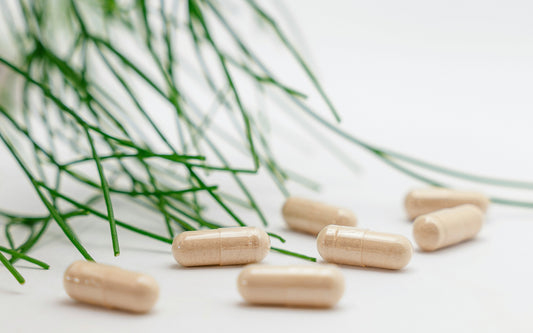Does Buchu Leaf Lower Blood Pressure?
Buchu leaf is a traditional herbal remedy that has been used for various health issues, but can it lower blood pressure effectively? This article explores the potential benefits of buchu leaf in managing hypertension and discusses its safety profile. We will delve into the available evidence and provide recommendations for usage and precautions.
- Buchu leaf is a plant native to South Africa and is commonly used in traditional medicine for treating urinary tract infections, prostate problems, fevers, coughs, and upset stomachs.
- While there is insufficient evidence to rate its effectiveness in lowering blood pressure, buchu leaf is considered safe in small amounts in food and possibly safe when used as a medicine.
- Larger amounts and consuming the oil from buchu leaf may be unsafe and could cause stomach irritation, kidney irritation, increased menstrual flow, and liver damage.
- Pregnant women, individuals with bleeding disorders, kidney infections, liver problems, urinary tract inflammation, or those scheduled for surgery should avoid buchu leaf.
- Consulting with a healthcare provider is crucial before using buchu leaf, especially if taking medications that may interact with it.
Understanding Buchu Leaf and Its Uses
Native to South Africa, buchu leaf has been utilized in traditional medicine for centuries, with potential applications in managing hypertension. This herbal remedy, derived from the Agathosma betulina plant, boasts a range of health benefits, making it a popular choice in herbal medicine for various ailments. One of its key uses is its potential to support cardiovascular health, particularly in the management of high blood pressure.
Buchu leaf is commonly consumed in the form of tea, which is believed to have a calming effect on the body. Research suggests that buchu tea may help regulate blood pressure levels and promote overall cardiovascular well-being. The natural compounds found in buchu leaf, including diosphenol and isopulegol, are thought to contribute to these potential benefits.
In addition to its potential in managing hypertension, buchu leaf has a history of traditional use in treating urinary tract infections, prostate problems, fevers, coughs, and upset stomachs. These diverse applications make buchu leaf a versatile herb in the field of herbal medicine. However, it is important to note that more research is needed to fully understand and validate its effectiveness in treating these conditions.
When considering the use of buchu leaf, it is crucial to prioritize safety. While buchu leaf is generally considered safe when consumed in small amounts as part of a healthy diet, excessive consumption or use of buchu oil may lead to adverse effects. These can include stomach irritation, kidney irritation, increased menstrual flow, and liver damage. Pregnant women, individuals with bleeding disorders, kidney infections, liver problems, urinary tract inflammation, or those scheduled for surgery should avoid buchu leaf. It is always advisable to consult with a healthcare provider before incorporating buchu leaf or any other herbal remedy into your healthcare regimen, especially if you are taking medications that may interact with it.
Benefits of Buchu Leaf for Hypertension
While there is limited scientific evidence to definitively support the use of buchu leaf for lowering blood pressure, its potential benefits in managing hypertension cannot be overlooked. The natural compounds present in buchu leaf may help regulate blood pressure levels and improve overall cardiovascular health. As a natural remedy, buchu leaf offers a promising avenue for individuals seeking complementary approaches to managing their blood pressure.
| Benefits of Buchu Leaf for Hypertension | Scientific Evidence |
|---|---|
| Potential regulation of blood pressure levels | Limited scientific evidence |
| Promotion of overall cardiovascular well-being | Understanding ongoing |
It is important to note that while buchu leaf shows promise in supporting cardiovascular health, it should not be used as a substitute for prescribed medications or medical advice. As with any natural remedy, it is best to consult with a healthcare provider before incorporating buchu leaf into your healthcare regimen, particularly if you have pre-existing medical conditions or are taking medications that may interact with it.
Overall, buchu leaf holds potential as a natural remedy for hypertension and offers a range of health benefits. However, further research is needed to validate its efficacy and safety in treating various conditions. By working closely with healthcare providers and adopting a holistic approach to healthcare, individuals can explore the potential benefits of buchu leaf while ensuring their well-being is appropriately managed and monitored.
Safety Considerations of Buchu Leaf
Before incorporating buchu leaf into your regimen, it is crucial to understand its safety considerations and potential interactions with other treatments for high blood pressure.
Buchu leaf, derived from a plant native to South Africa, has been used for centuries in traditional medicine to address various health concerns. While it is considered safe in small amounts as a food ingredient, caution should be exercised when using it as a medicinal herb.
High doses of buchu leaf or consuming the oil derived from it may lead to adverse effects. These can include stomach irritation, kidney irritation, increased menstrual flow, and liver damage. Pregnant women should avoid the use of buchu leaf, as it may potentially cause miscarriages. Individuals with bleeding disorders, kidney infections, liver problems, or urinary tract inflammation should also refrain from using buchu leaf. Lastly, if you are scheduled for surgery, it is essential to discuss the use of buchu leaf with your healthcare provider beforehand.
| Considerations | Potential Interactions |
|---|---|
| Stomach irritation | Antacids, H2-antagonists, proton pump inhibitors |
| Kidney irritation | Diuretics, angiotensin-converting enzyme (ACE) inhibitors |
| Increased menstrual flow | Hormonal therapies, anticoagulant medications |
| Liver damage | Hepatotoxic drugs, statins, nonsteroidal anti-inflammatory drugs (NSAIDs) |
It is important to note that buchu leaf may also interact with certain medications. For example, it may have an additive effect when taken with antacids, H2-antagonists, or proton pump inhibitors, potentially exacerbating stomach irritation. Additionally, using buchu leaf alongside diuretics or ACE inhibitors may increase the risk of kidney irritation.
Before starting any new treatment or supplement, including buchu leaf, it is crucial to consult with a healthcare provider. They can provide personalized advice, assess potential interactions with other medications, and ensure your overall treatment plan is safe and effective.
"Before incorporating buchu leaf into your regimen, it is crucial to understand its safety considerations and potential interactions with other treatments for high blood pressure."
Exploring the Evidence: Does Buchu Leaf Lower Blood Pressure?
Let's delve into the scientific research to determine whether buchu leaf can be a viable natural solution for managing hypertension. Buchu leaf, derived from the Agathosma betulina plant native to South Africa, has been used for centuries in traditional medicine to address various health concerns, including urinary tract infections, prostate problems, fevers, coughs, and upset stomachs. However, its potential role in reducing blood pressure remains a subject of investigation.
While numerous anecdotal reports and traditional uses suggest that buchu leaf may have beneficial effects on blood pressure, there is currently limited scientific evidence to support its effectiveness. A comprehensive review of available studies and clinical trials is needed to ascertain its true potential.
It is important to note that buchu leaf is generally considered safe when consumed in small amounts as a food ingredient and possibly safe when used as a medicine. However, caution should be exercised when using larger amounts of buchu leaf or its oil, as it may lead to adverse effects such as stomach irritation, kidney irritation, increased menstrual flow, and even liver damage. Pregnant women are advised to avoid buchu leaf due to potential risks of miscarriage, and individuals with bleeding disorders, kidney infections, liver problems, urinary tract inflammation, or those scheduled for surgery should also refrain from using buchu leaf.
| Key points: |
|---|
| Buchu leaf is traditionally used to treat various health concerns. |
| Scientific evidence on buchu leaf's effectiveness in lowering blood pressure is currently limited. |
| Consuming small amounts of buchu leaf is generally considered safe, but larger amounts may cause adverse effects. |
Given the potential risks and limited evidence, it is crucial to consult with a healthcare provider before incorporating buchu leaf into your hypertension management regimen, especially if you are taking medications that may interact with it. Your healthcare provider can provide personalized advice and guidance based on your specific health needs.
While buchu leaf has been used for centuries in traditional medicine for various health conditions, including hypertension, the scientific evidence supporting its effectiveness in lowering blood pressure is currently limited. Buchu leaf is generally considered safe in small amounts, but larger quantities or the use of buchu leaf oil may have adverse effects. Pregnant women and individuals with certain medical conditions should avoid buchu leaf. It is important to consult with a healthcare provider before using buchu leaf to manage hypertension, particularly if you are taking other medications. More research is needed to fully understand buchu leaf's potential role in managing high blood pressure.
Potential Risks and Side Effects
While buchu leaf may offer potential benefits for managing hypertension, it is crucial to understand and address any associated risks or side effects. It is important to note that the evidence on the effectiveness of buchu leaf in lowering blood pressure is limited, and more research is needed to establish its efficacy.
When used in small amounts as a food ingredient, buchu leaf is generally considered safe. However, consuming larger quantities or using buchu leaf oil may pose certain risks. These include stomach irritation, kidney irritation, increased menstrual flow, and potential liver damage.
Pregnant women should avoid buchu leaf due to its potential to cause miscarriages. Individuals with bleeding disorders, kidney infections, liver problems, or urinary tract inflammation should also refrain from using buchu leaf. Additionally, if you are scheduled for surgery, it is advisable to avoid buchu leaf as it may interfere with blood clotting.
As buchu leaf may interact with certain medications, it is essential to consult with a healthcare provider before incorporating it into your hypertension management plan. They can provide personalized advice, assess any potential interactions, and help determine the appropriate dosage and usage of buchu leaf.
| Key Points: |
|---|
| - Buchu leaf may offer potential benefits for managing hypertension, but more research is needed. |
| - It is generally safe when used in small amounts as a food ingredient. |
| - Larger quantities and buchu leaf oil may cause stomach irritation, kidney irritation, increased menstrual flow, and liver damage. |
| - Pregnant women, individuals with bleeding disorders, kidney infections, liver problems, urinary tract inflammation, or those scheduled for surgery should avoid buchu leaf. |
| - Consult with a healthcare provider before using buchu leaf, especially if taking medications that may interact with it. |
Recommended Usage and Precautions
To optimize the potential benefits of buchu leaf for managing hypertension, it is important to understand the recommended usage and necessary precautions. While there is limited scientific evidence on its specific effects on blood pressure, buchu leaf has long been used in traditional medicine for its potential health benefits. However, it is crucial to exercise caution and consult with a healthcare provider before incorporating buchu leaf into your hypertension management plan.
When using buchu leaf, it is advised to start with small amounts and gradually increase the dosage if needed. This allows you to assess your body's response and tolerance to the herb. Buchu leaf can be consumed in various forms, including as a tea, tincture, or capsule. It is recommended to follow the instructions provided by the manufacturer or as advised by a healthcare professional.
It's worth noting that buchu leaf may interact with certain medications, such as diuretics or anticoagulants, so it is important to inform your healthcare provider about any medications or supplements you are currently taking. They can evaluate potential interactions and provide personalized guidance.
| Potential Risks | Precautions |
|---|---|
| Buchu leaf may cause stomach irritation and kidney irritation if taken in large amounts or in concentrated forms. | Avoid consuming buchu leaf oil and stick to recommended dosages. |
| Large amounts of buchu leaf may increase menstrual flow, so it should be avoided by pregnant women as it may be unsafe and potentially cause miscarriages. | Pregnant women should avoid buchu leaf. |
| Buchu leaf may cause liver damage if consumed in excessive amounts or over a prolonged period. | Avoid excessive use of buchu leaf and consult with a healthcare provider if you have liver problems. |
| Individuals with bleeding disorders, kidney infections, urinary tract inflammation, or those scheduled for surgery should avoid buchu leaf. | Consult with a healthcare provider before using buchu leaf. |
Buchu Leaf and Other Health Benefits
Beyond its potential for managing hypertension, buchu leaf has been traditionally used for various health issues, which we will explore in this section. Derived from the Agathosma betulina plant native to South Africa, buchu leaf has long been valued in herbal medicine for its potent properties. Let's take a closer look at some of the potential health benefits associated with this remarkable plant.
One of the primary uses of buchu leaf is in the treatment of urinary tract infections. Its natural diuretic properties help flush out bacteria from the urinary system, making it an effective natural remedy for this common ailment. Additionally, buchu leaf may help alleviate prostate problems, offering relief from symptoms such as frequent urination and discomfort.
Furthermore, buchu leaf has been known to have positive effects on managing fevers and respiratory conditions such as coughs. Its anti-inflammatory properties may help reduce inflammation in the respiratory tract, soothing irritation and promoting easier breathing. Additionally, buchu leaf is often utilized to ease upset stomachs, providing relief from indigestion and gastrointestinal discomfort.
While the traditional uses of buchu leaf are promising, it's essential to remember that further research is needed to fully understand its effectiveness for these specific health issues. As always, it's crucial to consult with a healthcare provider before incorporating buchu leaf or any herbal remedy into your healthcare routine, especially if you have any underlying medical conditions or are taking any medications that may interact with buchu leaf.
Conclusion
Based on the available evidence and traditional usage, buchu leaf may hold promise as a natural remedy for managing hypertension, but it is essential to approach its usage with caution and seek professional guidance.
Buchu leaf, a plant native to South Africa, has been used for centuries in traditional medicine to treat various ailments including urinary tract infections, prostate problems, fevers, coughs, and upset stomachs. However, when it comes to its effectiveness in lowering blood pressure, there is insufficient evidence to draw a definitive conclusion.
While buchu leaf is generally considered safe in small amounts as a food ingredient and possibly safe when used as a medicine, caution should be exercised. Larger amounts and consuming the oil from buchu leaf may lead to stomach and kidney irritation, increased menstrual flow, and even liver damage. Therefore, it is important for pregnant women to avoid buchu leaf as it may be unsafe and potentially cause miscarriages.
Individuals with bleeding disorders, kidney infections, liver problems, urinary tract inflammation, or those who are scheduled for surgery should also refrain from using buchu leaf. It is crucial to consult with a healthcare provider before incorporating buchu leaf into your hypertension management plan, particularly if you are taking medications that may interact with it.
FAQ
Does Buchu Leaf lower blood pressure?
Buchu leaf is commonly used in traditional medicine, but there is insufficient evidence to rate its effectiveness in lowering blood pressure.
What are the potential benefits and uses of Buchu Leaf?
Buchu leaf is traditionally used to treat urinary tract infections, prostate problems, fevers, coughs, and upset stomachs.
Is Buchu Leaf safe to consume?
In small amounts in food and possibly as a medicine, buchu leaf is considered safe. However, consuming larger amounts or using the oil from buchu leaf may cause adverse effects such as stomach and kidney irritation, increased menstrual flow, and liver damage.
Who should avoid using Buchu Leaf?
Pregnant women, people with bleeding disorders, kidney infections, liver problems, urinary tract inflammation, or those scheduled for surgery should avoid buchu leaf. It is important to consult with a healthcare provider before using buchu leaf, especially if taking medications that may interact with it.





